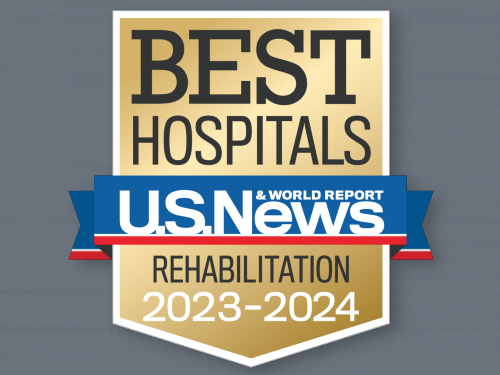Each year, about 1,400 babies are born with spina bifida in the United States and about 10,000 children will develop cerebral palsy. The majority of these children will face multiple physical and cognitive challenges that affect their early learning and later academic performance, and their independence.
“Early intervention is critical to a child’s development,” says Heather Taylor, PhD, director of the Spinal Cord Injury and Disability Research Center (SCIDR) at TIRR Memorial Hermann and an associate professor in the department of Pediatrics at McGovern Medical School at UTHealth. “We believe that children can benefit best when they’re very young, when we can lay a foundation for later learning and motor functioning. Parents have the greatest potential to influence their child’s development because of the number of opportunities they have for interaction.”
With that in mind, researchers from TIRR Memorial Hermann and the Children’s Learning Institute (CLI) at The University of Texas Health Science Center at Houston (UTHealth) are testing the effectiveness of a parenting program on early learning and motor development of children with spina bifida and children with tone and strength disorders, including cerebral palsy. Begun in the fall of 2012, the four-year research project is funded through a $2.65 million grant awarded to UTHealth by the U.S. Department of Education’s Institutes of Education Sciences.
“We’re investigating whether an integrated parent responsiveness and motor support intervention will result in changes in parent behavior that lead to greater improvements in the infants’ development of core skills and competencies, including attention, cognition, goal-directed play, language and motor performance,” says Dr. Taylor, who is also an adjunct associate professor in the departments of Physical Medicine and Rehabilitation at McGovern Medical School and Baylor College of Medicine. “Past research has shown that a more responsive parenting style improves children’s development and learning – as do motor support strategies with motor development and learning. Rarely have the two been tested together.”
The researchers will enroll 180 children from 1 to 4.5 years of age into one of three different intervention groups. One group is exposed to the Play and Learning Strategies (PALS) program, a nationally recognized program developed by CLI director Susan Landry, PhD, and pediatric psychologist Karen Smith, PhD. PALS promotes early learning through in-home coaching by trained experts who use weekly meetings, materials and video feedback to improve parent-child interactions and stimulate early language, cognition and social development.
Another group will work with the Play and Learning Strategies to Enable Children with Special Needs (PALS-Enable) program, which Dr. Taylor developed using PALS as the foundation working in collaboration with project co-investigators Susan Landry, PhD, Marcia Barnes, PhD, and Cathy Guttentag, PhD, and in consultation with physical therapists and occupational therapists. PALS-Enable uses the same strategies as PALS, and adds motor supportive strategies designed to improve the child’s positioning and movement to ease exploration of the environment.
Kristine Higgins, PT, NCS, a senior physical therapist at TIRR Memorial Hermann, has been critical to the success of the project by helping with the development of the PALS-Enable intervention curriculum and training researchers to guide parents in responsive and motor learning behaviors that may benefit children with special needs. “By educating and certifying the researchers to perform assessments of upper-extremity and lower-extremity motor function according to the curriculum, we ensure consistency in reporting progress participants make over time,” Higgins says. “Participation in the study is in addition to any therapy the children are currently undergoing. We want to determine if these interventions have a benefit that goes beyond what they’re already receiving.”
The third group of participants will receive child development information through weekly phone calls from coaches. Each group intervention will be delivered once a week for 14 weeks, in Spanish or English.
To refer a family to the study, please email jose.vega@uth.tmc.edu or call Jose Vega at (713) 500-3712.
